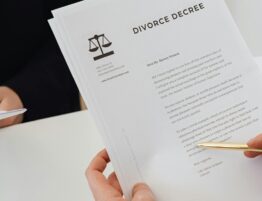Under Arizona Revised Statute 13-1209, the unlawful discharge of a firearm from a vehicle is considered a serious crime that may result in severe penalties for those involved. However, not all cases of drive-by shootings are equal, and some may be considered less severe than others.
If you or someone you know has been charged with the unlawful discharge of a firearm in a drive-by shooting in Arizona, it is crucial to seek legal representation from a knowledgeable attorney. The Law Office of Daniel Hutto offers free consultations to discuss your case and provide guidance on the best course of action.
Don’t face these charges alone – contact us today to learn more about how we can help defend your rights and protect your future.
Here’s what this article will cover:
- What is Considered a Drive-By Shooting Under ARS 13-1209
- How are Drive-By Shootings Convictions Penalized in Arizona
- What If I was a Passenger in a Drive-By Shooting
- Defenses For Drive-By Shooting Charges
- Get Help From a Criminal Defense Attorney
How an Arizona Criminal Defense Attorney Can Help
Our Phoenix Criminal Defense Attorneys are Here to Help!
What is Considered a Drive-By Shooting Under ARS 13-1209
A drive-by shooting, as defined by ARS 13-1209, involves the intentional discharge of a weapon from a motor vehicle at specific targets. This offense is treated with utmost seriousness due to the inherent danger it poses to public safety.
➤ Definition of a Drive-By Shooting
According to ARS 13-1209(A), a person commits a drive-by shooting by intentionally discharging a weapon from a motor vehicle at:
- A person
- Another occupied motor vehicle
- An occupied structure
➤Important Definitions
Here are additional important definitions found under ARS 13-1209:
Motor Vehicle: As per ARS 28-101, a motor vehicle is defined broadly to include cars, trucks, motorcycles, and any other motorized vehicles. This means the offense can occur from any such vehicle, whether moving or stationary.
Occupied Structure: Under ARS 13-3101, an occupied structure is defined as any building, vehicle, railroad car, or place adapted for overnight accommodation or business activity that is likely to be occupied.
How are Drive-By Shootings Convictions Penalized in Arizona
Drive-by shootings are considered one of the most serious crimes under Arizona law, classified as Class 2 felonies.
Class 2 Felony Explained
Class 2 felonies are among the most serious offenses in Arizona, second only to Class 1 felonies which typically involve the most egregious crimes such as murder. A conviction for a Class 2 felony can result in substantial prison time, significant fines, and other long-lasting consequences.
Penalties for Class 2 Felonies
- Prison Sentences: For a first-time offender, a Class 2 felony conviction can result in a prison sentence ranging from 3 to 12.5 years. Aggravating factors, such as prior criminal history or the presence of children during the crime, can lead to longer sentences.
- Fines: Offenders may face fines of up to $150,000, not including additional assessments and fees imposed by the court.
- Probation: In some cases, the court may impose probation, though this is less common for drive-by shootings due to the violent nature of the crime.
Additional Penalties for Drive-By Shooting Offenders
In addition to the standard penalties for Class 2 felonies, those convicted of drive-by shootings face several specific and severe additional penalties:
Vehicle Seizure and Forfeiture
Motor vehicles used in the commission of a drive-by shooting are subject to seizure and forfeiture. This means law enforcement can confiscate the vehicle involved, and it may be permanently taken from the offender, as outlined in Chapter 39 of Title 13.
Driver’s License Revocation
A conviction for a drive-by shooting mandates the revocation of the offender’s driver’s license. According to ARS 13-1209(C), the judge will order the surrender of the driver’s license, which will be invalidated or destroyed. The Department of Transportation will revoke the driving privilege for a period of at least one year but not more than five years, depending on the specifics of the case and the judge’s order.
Long-Term Consequences
- Criminal Record: A Class 2 felony conviction will remain on an individual’s criminal record permanently, affecting future employment opportunities, housing, and other aspects of life.
- Civil Rights: Offenders may lose certain civil rights, such as the right to vote or possess firearms.
| Section | Description |
|---|---|
| Class 2 Felony Explained | Class 2 felonies are among the most serious offenses in Arizona, second only to Class 1 felonies which typically involve the most egregious crimes such as murder. A conviction for a Class 2 felony can result in substantial prison time, significant fines, and other long-lasting consequences. |
| Penalties for Class 2 Felonies | Prison Sentences: 3 to 12.5 years for a first-time offender, with possible longer sentences for aggravating factors. Fines: Up to $150,000, excluding additional assessments and fees. Probation: Possible but less common for violent crimes such as drive-by shootings. |
| Additional Penalties for Drive-By Shooting Offenders | Vehicle Seizure and Forfeiture: Motor vehicles used can be confiscated. Driver’s License Revocation: Surrender and revocation of the driver’s license for 1-5 years. Criminal Record: Permanent record impacting employment and housing. Civil Rights: Loss of rights like voting and firearm possession. |
What If I was a Passenger in a Drive-By Shooting
Being a passenger in a vehicle from which a drive-by shooting is conducted can have serious legal implications, even if you were not the one who fired the weapon.
Arizona law takes into account the involvement and potential complicity of all individuals present during the commission of a crime.
Imagine a scenario where John is giving his friend, Mark, a ride. Unbeknownst to John, Mark has a firearm and a plan to target a rival gang member. As they drive through a neighborhood, Mark suddenly pulls out the weapon and fires several shots at an occupied house. John, who was merely driving and had no prior knowledge of Mark’s intentions, now finds himself in a precarious legal situation.
In such cases, the prosecution will examine several factors to determine John’s culpability:
- Knowledge and Intent: The primary consideration is whether John knew about Mark’s plan and whether he had any intent to participate in the crime. If it can be proven that John had no knowledge of the shooting, his defense might argue that he was an unwitting participant.
- Actions During the Incident: The behavior of the passenger during and after the incident is also scrutinized. If John did not attempt to stop the shooting or report it to the authorities, the prosecution might argue that he was complicit.
- Prior Relationship and Context: The nature of John and Mark’s relationship and any previous interactions that might indicate a pattern of criminal behavior could also be relevant. If John and Mark were known to engage in criminal activities together, this could impact John’s defense.
Given the severity of a drive-by shooting, law enforcement and prosecutors are likely to pursue charges against anyone involved in the incident. John could potentially face charges related to aiding and abetting or being an accessory to the crime, depending on the circumstances.
If you find yourself in a similar situation, it is crucial to seek legal representation immediately. An experienced criminal defense attorney can help, gather evidence to support your lack of involvement, and advocate on your behalf to achieve the best possible outcome.
Defenses For Drive-By Shooting Charges
When facing charges for a drive-by shooting, it’s important to have a strong defense strategy. Here are several possible defenses that could be employed:
⑴ Lack of Intent
One possible defense is to argue that there was no intent to discharge the firearm. This strategy can be effective if the shooting was accidental or if the defendant did not know the gun would be fired.
⑵ Mistaken Identity
Another defense is the misidentification of the defendant. If there is doubt about whether the defendant was present at the scene or if witnesses are unreliable, this could lead to a lesser charge or an acquittal.
⑶ Alibi
An alibi defense involves proving that the defendant was not at the scene of the crime when it occurred. This could include providing witness testimonies, video footage, or other evidence showing the defendant was elsewhere.
⑷ Insufficient Evidence
The prosecution must prove the defendant’s guilt beyond a reasonable doubt. A defense attorney can challenge the adequacy and reliability of the evidence presented, arguing that it is not sufficient to support a conviction.
⑸ Constitutional Violations
If there were constitutional violations during the investigation, such as unlawful search and seizure, the evidence obtained may be inadmissible in court. This could significantly weaken the prosecution’s case.
⑹ Duress or Coercion
A defense of duress or coercion involves showing that the defendant was forced to participate in the drive-by shooting against their will, under threat of harm to themselves or others. This defense requires substantial evidence of the coercion or threat.
⑺ Self-Defense
In rare cases, it might be argued that the shooting was an act of self-defense. This would involve proving that the defendant or another person in the vehicle was under an immediate threat of harm and that discharging the weapon was necessary to protect themselves.
Each case is unique, and the applicability of these defense strategies will depend on the specific circumstances surrounding the incident. An experienced criminal defense attorney can evaluate the details of the case and determine the most effective approach to defend against the charges.
Get Help From a Criminal Defense Attorney

Facing charges for a drive-by shooting in Arizona can have severe consequences, making it important to have experienced legal representation. At the Law Office of Daniel Hutto, our team specializes in criminal defense. With years of experience, we provide comprehensive legal strategies tailored to each case, ensuring all aspects are thoroughly investigated and challenged.
Our client-centered approach ensures personalized attention and dedicated advocacy to protect your rights and interests. We offer a free consultation to discuss your case and provide informed advice on how to proceed.
Contact us today at 602 536-7878 to schedule your consultation.












